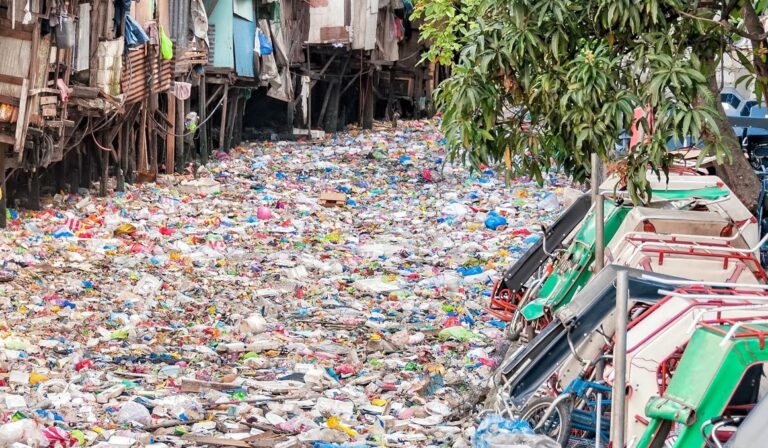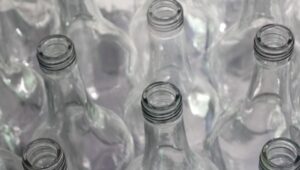In the current global scenario, while Europe and the United States are adopting increasingly stringent regulations to promote greening and reduce CO2 emissions, on the other side of the world, in Asia, progress in this field is slower.
It is important to emphasize that not all Asian governments can be held to the same standard. But in general the data show us a very different reality than the common narrative that mainly attributes major environmental problems to the West. A significant example is the management of plastics.
Table of Contents
Asia’s dominance in plastic production
According to recent data compiled by the Plastics Europe association, Asia has maintained its dominance in global plastics production.
China is confirmed as the leading player in this sector, responsible for more than 32 percent of global plastic production in 2019. This figure represents more than double the European production, which stands at 15 percent. And also exceeds the combined production of Canada, Mexico, and the United States, which together reaches 19 percent.
Even in the most recent 2022 report, the situation has not changed significantly. China continues to hold the lead in global plastics production, maintaining a 32 percent share.
It is followed, in order, by North America with 18 percent, Europe with 15 percent, the Rest of Asia with 17 percent, Africa and the Middle East with 8 percent, Latin America with 4 percent, and Japan, which alone contributes 3 percent of global plastic production.
The plastic challenge in Asia: heterogeneity and widespread problems
Regarding the Asian environment, at least two points need to be made. First, we cannot assume that the main producers of plastics are also the main end users of the product. Since, as in the case of China, it is necessary to consider exports of plastics abroad.
Second, there are significant differences in plastic recycling capacities between some technologically advanced countries, such as China and South Korea, and others, such as the Philippines and Bangladesh.
The result of this situation is a fragmented picture and Asia posing a serious international problem related to plastic management. This is due not only to disposal problems, but also to daily practices that are harmful to the environment.
Plastics in Asia: a key role in the global waste industry
Asia plays a key role in the global plastic waste industry, both as a major producer and as a major destination for waste exports from around the world.
Several Asian companies are among the largest contributors of single-use plastic waste, especially in countries such as Japan and South Korea, where plastic use is cultural. The Covid-19 pandemic has increased consumption of single-use plastic products, slowing policies against the use of these materials.
Developing countries in Southeast Asia, such as Malaysia, Indonesia, and Vietnam, are major importers of plastic waste from Europe and the United States. In the past, China was the largest recipient of global plastic waste exports. But in 2018 it banned the import of several types of waste, including plastic.
Asia-Pacific faces plastic pollution problems due to inadequate waste management infrastructure and lack of consumer awareness about recycling. By 2025, Apac is expected to be responsible for more than 70 percent of the world’s poorly managed plastic waste, with a significant portion of it ending up in the ocean.
Plastic pollution in Southeast Asia: source and victim
Southeast Asia is both a significant source and victim of plastic pollution in the Pacific Ocean. The region is a major contributor to the dispersal of land-based plastic waste into the oceans, with seven of the top ten rivers releasing waste located in the Philippines.
The Philippines also has the highest amount of plastic waste released into the ocean per capita. This, despite producing less waste than the United States and the United Kingdom.
Five Asian countries, including China, Indonesia, the Philippines, Vietnam and Thailand, are responsible for more than half of the plastic waste in the oceans. Southeast Asia is considered a hotspot for plastic pollution due to rapid urbanization and inadequate waste management infrastructure.
Developing countries struggle to manage waste due to lack of adequate infrastructure. Thus leading to poor management of plastic waste that ends up in the environment and oceans.
The fight against single-use plastics in Asia
In recent years, the sectors that have made the most use of plastic globally are packaging and construction. Followed by automotive, electronics, sporting goods, agriculture, and others.
In countries such as Thailand, Taiwan, and Japan, the use of single-use plastic is common. This is due to cultural reasons related to hospitality and product presentation. However, this practice has generated a huge amount of plastic waste that is burned, disposed of in landfills or ends up in the oceans.
Some Asian governments are trying to limit the use of single-use plastics. For example, Hong Kong plans to ban plastic cutlery, plates, cups and scoops by the end of 2023.
The Thai government has pledged to eliminate plastic bags and straws by specific dates. While Japan has adopted a new law to reduce the use of disposable plastic cutlery. However, the challenge of reducing the use of single-use plastic remains complex, as it affects several industries and requires a change in mindset.
Read also: Single-use plastic, the countries that have banned it












